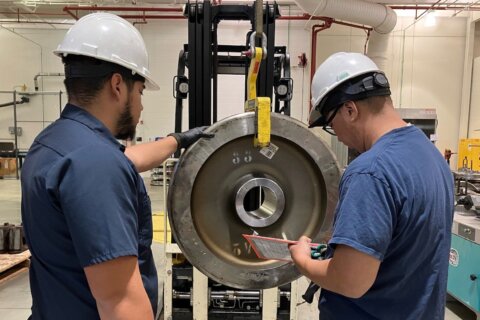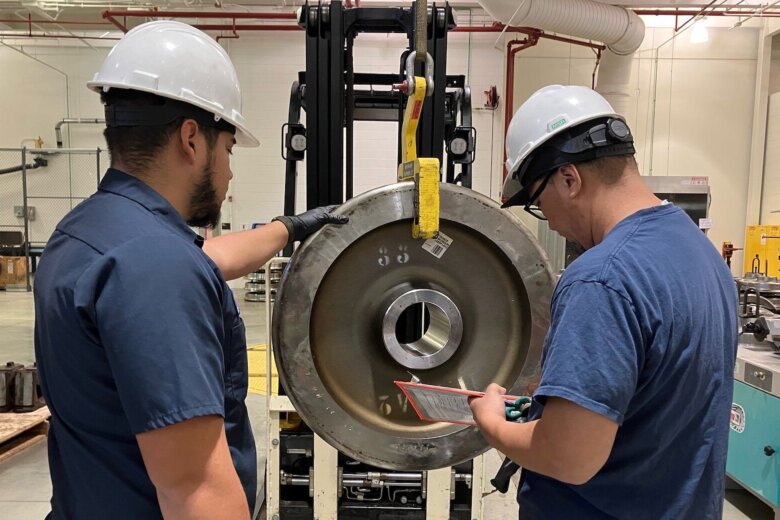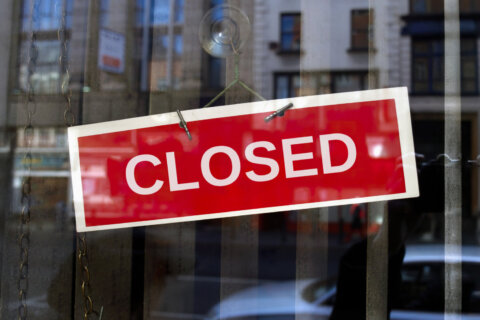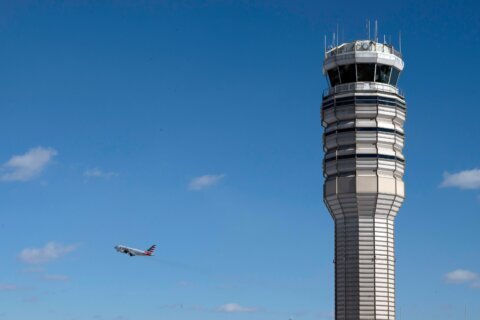
Metro released more of its 7000-series railcars into service on Monday, as well as a plan to replace the wheels on the cars and a timeline to return to a normal inspection period for the rail cars.
The 7000-series cars have been gradually returned to service since they were pulled over safety concerns after a train derailed in October 2021. Metro said the derailment happened because the wheels on the train had shifted too far apart on their axles.
Metro has changed the way that the 7000-series wheels are pressed to the cars based on a study of the railcars by the National Transportation Safety Board following the derailment.
Metro is continuing to restrict the number of 7000-series cars and inspect them at 30-day intervals. Because of this increased interval, there are a limited number of cars that Metro can put into circulation, Metro said in a news release on Monday.
“We appreciate the tireless efforts of our safety and maintenance teams to develop this process to ensure we can safely return more 7000-series railcars to service, which are the newest and most reliable in our railcar fleet,” said Metro General Manager and CEO Randy Clarke in statement.
Metro said it will cost about $55 million over several years to return all of the 7000-series cars into normal service.
The current plan, according to Metro, is to complete the wheel pressing process at a rate of 20 cars per month. There’s a total of 748 railcars, which is 5,984 wheels on 2,992 axles, Metro said.
“It will take an extensive amount of work over the next few years, but as we begin to have more 7K’s available, customers will begin to see even more improvements in reliability and service,” Clarke said.
Before the cars return to their normal inspection periods instead of the current increased 30-day inspection period, the cars need to hit 20,000 miles in passenger service. At that time, Metro will perform additional inspections before those cars return to a longer inspection interval.
Metro said that due to the shortage of cars because of the slow return of the 7000-series, Metro continues to “utilize its oldest, least reliable railcars in the legacy fleet. As more 7000-series railcars are completed, tested, and able to run longer between inspection intervals, Metro will gradually be able to increase the number of 7Ks in service providing customers with more reliability and comfort.”









